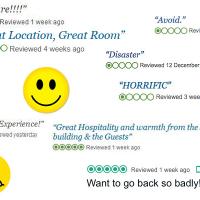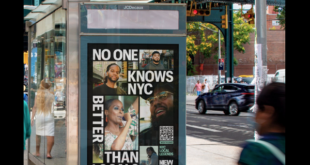[ad_1]
So here is how the story goes the last 10 years: Prospective travelers blindly read reviews and take decisions what hotel, restaurant, or anything else to choose. Research suggests the average person reads about seven reviews before making a decision. Holiday review sites are becoming increasingly popular, with TripAdvisor gathering 45 million reviews of more than 500,000 different places worldwide. Theoretically, this is a great idea. In reality, such review sites can be hijacked by hotels, advertising agencies, and Web marketing firms that post fake – and mostly positive- reviews. Frankly, “user review” sites are spammed to defraud unwary travelers. Sadly we are not living in an angelic world. Guess what: Reviews CAN be either fake, not written freely or bought!
There is thought to be a well-paid market for people who are willing to accept cash for a fake review, and also if you search well there are plenty job posts for “reviewing” but so far only 30 properties around the world have been blacklisted. I am sure you are all familiar with “review brushing”. In 2014, Haitao Xu, a thirty-year-old researcher observed five black-market Internet boards where companies and individuals advertise jobs posting positive reviews of their products and services, down with negative ones on those of their competitors. Within two months Xu noticed that more than 11.000 unique sellers post close to quarter of a million jobs. “[S]tores using brushing services can increase their reputation ten times faster than normal seller stores.”
Studies demonstrated that up to 20 percent of all reviews on Amazon, booking.com and TripAdvisor are phony or bought. It is depressing but expectantly no big news. A research by Market Watch has found that there are companies (what a surprise!) that hire freelancers from places like the Bangladesh, Philippines, and mainly Eastern Europe to write fake reviews for $1 to $10 each. As a result the Attorney General’s Office banged them with fines of thousands of dollars.
We go to the chase now with the king review site; TripAdvisor. Trip advisor can make a huge business impact on hotels and I am pretty sure that most of the hotels take it extremely seriously – even to the extent of sending fake reviews. I will begin with a personal experience. Our little, small X hotel located in Crete was listed years ago having great review score and ranking (still has). When “elite” rivals decided to sabotage our credibility, by reducing it because we were taking up their position, they posted “of course” a fake review. Hence, WE were accused of posting a fake review. When we sent a letter to trip advisor, guess what happened:
- They ‘blackmailed’ us that they will remove hotel and reduce our score and spot, with no proof accusing us for things that we haven’t even thought about them.
- They insisted that the review was done by one of our employees (Note: Family run hotel) except maids and maintenance employees who were unaware of technology and internet.
- They reduced our ranking despite any proof. They never replied to our 5 detailed emails with proofs and arguments. So we got a “negative review” which we had no idea where it came from. We were “red flagged” and had no financial resources to get them to court. In addition we were not able to remove listing unless we paid the pricey Business Listing!
- Generally, many hotels support they black list anyone who has the slightest disagreement with them, their policies, etc. Working some years ago in a known hotel, I’ve seen a former guest who has praised the hotel in all directions being black listed (I’m omitting some details). He was added to the black list because they wanted something the hotel claimed the guest never asked for.
Concerning its ranking, it becomes more ridiculous since TripAdvisor’s ranking is not based on quality. In fact it is called a “Popularity Ranking” since those with the most reviews get higher ranking. This means that hotels with more rooms can always outrank a hotel with fewer rooms, tour operators will always have a higher ranking than companies who have fewer clients, and Chain Hotel will always be on top as well as those who work year round. Let’s admit it, TripAdvisor is too big and powerful and able to ignore and “pressure” small hotels to “work” with them in order to avoid misadventures and protect its reputation. It has become a monstrous travel company manipulating both travelers and small businesses. Unfortunately and unfairly fraud is most obvious in small medium sized accommodations. Occasionally exploitation is above suspicion, like bothering customers with email to send a review. Additionally, I have seen plenty of unprofessional reviews obviously sent by owners or associates. Guess what; TripAdvisor allows reviews by people even if they have NOT stayed there. If you attempt to book a room and the hotel is full, you can write a review, if you send an email and for any reason they will not reply you, you can write a review criticizing the hotel; Oh goody, pretty fair! Also are you aware that from 2013 TripAdvisor has silently took out the words “honest” and “trusted” from all of its website marketing and it’s now the “World’s largest travel site”? I wonder why!! Something to sleep on it! An Online reputation management company KwickCheck, has found that between 5 and 10 million reviews on TripAdvisor could be fake. Carlton Hotel Group, an Irish group with numerous properties, was in the news when a company e-mail came to light encouraging employees to post phony reviews on TripAdvisor. Of course the hotel group claimed the policy was never implemented. This is just one of similarly cases. You may perhaps remember reading about Ireland’s Clare Inn, a hotel in the Lynch Hotel Group that was caught messing with its online ratings in 2010, as said by the Independent. I assume that every review site always has at least a few fakes written by the businesses themselves or by their rivals.
On top, OTAs have their own review system which they claim is 100% unbiased and genuine. Well that’s pretty dubious since in booking.com I personally know many listed hotels that have admitted that they have put their relatives and/or friends all over Greece to book for few days (they never visited hotel) just to make a review afterwards. When I noted “but you have been charged commission” they replied “so what? We have got an improved review score!” “You” dear guest see this positive customer review score as a reliable indicator of quality, let me just laugh! So, are any user-written hotel reviews useful? Yes, if they’re obtained from real guests. In a known travel forum a traveler states her/his own personal experience with booking.com. She/he has reserved a hotel in Milan in booking.com and made two reservations for two following weekends. The first weekend he stayed he was not at all satisfied so he gave a bad review. The second weekend he went again (since it was non refundable). At 3pm he checked in and paid the full amount of his stay and at 5pm he received a message from booking.com that reservation was canceled (while he was at the hotel). Can you guess why? Real hotel Real Guest they support; that is a big fat lie! He was a real guest but was cheated on his right to give a second feedback because that would affect the review score once more. He was a real guest and yet he was not allowed to share his experience because it was NOT what they wanted. This dear traveler is the Ugly truth! Additionally a close friend has traveled to Rome recently. They booked a hotel with an 8 score via booking.com. After few days I told her to have a look at the reviews in trip advisor too. To their disappointment the reviews were horrific (many of them anonymous). So what to believe??? Such misfortunes are frequent. Go around and ask anyone, and they’ll have a horror story of their own having booked a hotel based on anonymous reviews.
According to a 2012 study by PhoCusWright in the US, an average traveler spends 21 days choosing a destination, using a mixture of search engines, online travel agents, bloggers and recommendations from his social network. Approximately 60 percent grumbled about “[b]ooking processes, including the time it took to surf the Web, information overload, and uncertainty over whether they’d found the best deal.” This hassle is to a certain extent due to the mass adoption of user-generated recommendation sites. According to Olery, “[t]he average number of reviews received by hotels per year has exploded from two in 2002, to an estimated 465 in 2012. Trip Advisor alone hosts more than 75 million opinions and sees 60 million visitors a month.” The absence of a thoroughly and serious investigation and a free posting platform makes the reviews to seem from madly positive to heinous. Obviously, those who have experienced either fantastic or terrible service are eager to share their experience. However, writing online reviews is too damn easy. On 2011, researchers asked freelance writers to write fake reviews of about 400 hotels in Chicago, which they did at ease. Afterwards three volunteers were invited to tell the real reviews from the bogus ones but were unable to do so. Nowadays we’re communicating in a virtual mode while we have developed over thousands of years confronting each other. Despite this, at the moment it is tougher to separate reality over falseness. Anyone can post anything without indicating a name or even verifying the stay.
A majority of views may perhaps represent tendencies and a rather accurate picture of a property in a broader level when viewed by fair minded people. Conversely, many recommendations often come from less travelled juveniles and inexperienced people. According to Olery, “the vast majority of reviewers (75 percent) fall between the ages of 25 and 49. These users – 30 percent of whom are between 25 and 34 – generally lack the travel experience to offer discerning perspectives.” Some time ago a customer has left us a review in booking.com saying that our bathroom was too small (our bathroom is the bigger in size among 30 hotels in our area). When we answered back asking him how big was his/her bathroom we had a reply that he was living in a house with 5 bedrooms. So as you understand, there are a lot of constrains and subjectivity when it comes reviewing hotels for its size, or decoration, etc. Size, decoration, etc is relative and “relative to guest expectations” is of no use when every traveler has dissimilar expectations. Every person comes from a different culture, with different tastes, aesthetics, etc. Bear in mind that one person’s “cozy” is another person’s “too small” and one person’s “creative deco” is another person’s “kitsch”. Opinions count of course but there is a huge difference in the value of each perception.
Regarding bloggers, allow me to throw a grain of salt to the authenticity of their reviews as well. Lately I have stumbled upon load of fake reviews by bloggers. There are bloggers who are writing reviews of hotels they quite apparently didn’t visit. But, for goodness sake why do some bloggers choose to collect review posts with extremely same information offered online? Some of them even use the very same pictures you will find on known booking sites. Where is ethics and value? And concerning value I don’t mean their associate income, but about their followers who naively trust them. There are also bloggers who have visited hotels that were not that good but since their stay was “all inclusive” (sometimes air fares are included) they “were obliged” somehow to be polite in their review. Call me crazy but these reviews are “paid for”. On the other hand many bloggers will support that they are expressing their own, subjective opinions. My personal belief is that if you get paid for a review, you will FOREVER make it seem much better than it worth’s. Instantly, your connection with the hotel alters from customer to partnership; a sponsored one.
So, what about you Dear Traveler? What do you think about all these thousands of phony reviews out there? How do you feel about bloggers being “backed up”? What do you consider about fake reviews from OTA’s?
Stop relying to reviews only. Real People; real reviews most of the review sites claim. Just for laughs! Sure, the people might be real, but it appears that one-fifth of all the reviews are big, large phonies. Open your eyes! You will soon realize that a huge portion of the reviews are fake, bought or not written freely. I’ve seen hotels placing special review computers in their lobby (some offer discounts, others free drinks, and so on).A study showed that hotels in Britain and abroad are offering guests discounted rooms and meals as well as cash rewards in return for positive reviews on travel websites. A research from Olery, an Amsterdam-based market intelligence agency, indicated that 49 percent of travelers say they will not book a hotel without reading reviews first, and 81 percent say they find user reviews vital. So which reviews to choose? Handpick reviews, read the business response and believe less! Take extremely positive reviews with a grain of salt. In addition, be doubtful of hyperbolic negative reviews too, because a guest who feels insignificant or cheated for any reason isn’t likely to be objective.
In the annals of the worldwide travel industry such incidents are common. Bogus online reviews can throw unsuspicious travelers into an unwelcome misadventure, and left many properties unpleasantly stunned. Some hints for Hoteliers:
- Allow customers to give reviews in your business website; if hotels did that I wonder what review sites would do; something to sleep on it.
- Next time you have a bad review (real and with name); do not reply. Pick up the phone and make a call. It is surprising but it works. Do you remember what it used to be before the internet came along? When a customer had a complaint, it was stated and quickly dealt. Nowadays, people find it difficult to confront the hotel and just go online with a diabolical post. But now, people just go online and vent their spleen. I remember a specific instance when I worked for few months in hotel; a couple had a spa treatment. It appeared that, the couple did not appreciate the women who were chatting as they worked and wrote a comment on TripAdvisor before complaining to the hotel. They were of course entirely right to expect a more tranquil spa experience. But from my point of view, it’s very sad if you only want to complain without trying to find a solution.
Generally, look at what is being complained about; if it is deliberately absurd ignore it since the serious travelers out there will as well.
Unfortunately fraudulent reviews will remain a problem and if trust goes away, everybody loses; guests and hotels. I strongly believe the final worth in reviews comes from the “wisdom of the crowds“. User-review systems will always be vulnerable to exploitation. The ethics imply that they have to be able to properly deal with it in order to protect people from abuse and harassment, or they turn out to be responsible for that abuse. It is most of the times safer to take into account a combination of review systems rather than a single one. So step back and let common sense prevail. Alas, hotels and travelers it is time to fight back! After all, in our big fake world, as a known blogger notes “[w]here likes on social media become a hard currency, authenticity lost its meaning.”
[ad_2]You can read more of the news on source
 Travelsmart
Travelsmart



